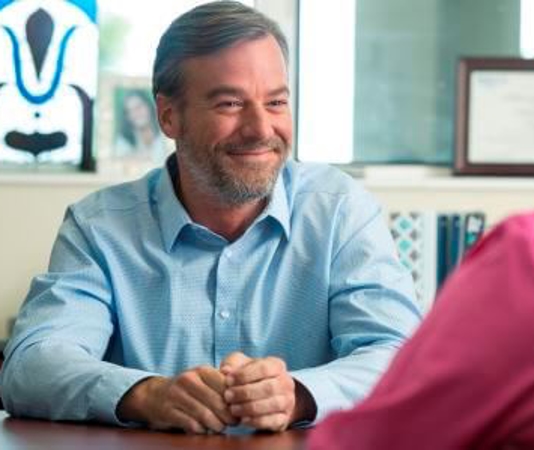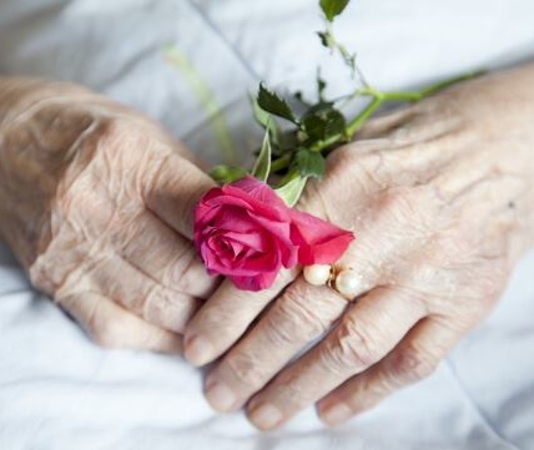When Mandy Merkel visits a family with a loved one whose health has significantly declined, one of her biggest struggles is getting them to overcome misconceptions about hospice.
“Everyone has this idea that hospice means imminent death, and it’s not that at all,” said Merkel a certified geriatric care manager in the Atlanta area. “Hospice is not forever. You do not have to stay on hospice. I’ve had people come off of hospice because they’ve done so well. You don’t have to stay there until you die. You can, and that is usually the way it goes, but it doesn’t have to be. It’s not like: This is it – I’ve made this decision, this is the end.”
Hospice care simply brings a different philosophy to the care being provided to those who need it. Instead of focusing on a person’s recovery and the prolonging of life, hospice care providers center on making sure the person is as comfortable as possible and that everyone feels at ease as much as possible. It also decreases the number of people involved in a person’s care. Instead of several different doctors and nurses from different medical practices, hospice becomes the one point of contact for a family.
That leads to the major question families should ask when they are unsure if hospice should become involved: Have we reached the point where we’re only interested in keeping somebody comfortable?
Hospice Care“If you’re still at a life prolonging point, using aggressive rehab, then you’re not ready for hospice. If you’re at the point where you see that quality of life is diminishing, there is significant pain, or someone needs a whole lot more help, hospice should be a consideration,” Merkel said.
A big part of Merkel’s job is to work with families and explain to them how hospice works, holding their hand through the entire process.
“Hospice can come in and evaluate everything, including the often large amount of medications prescribed by various doctors and if someone’s comfortable and pain free, that’s all you should want,” Merkel said.
The misconceptions about hospice often throw up the biggest roadblock. Because many families feel like agreeing to hospice care is giving up – they do not want to accept it. It can be hard for any person to accept that the end is near, even though a person is showing a steady decline.
“I work with families, acknowledging that this is difficult to accept. I know it’s really hard. I put my own mother into hospice before she passed away. But families need to know there are options that can make this process easier, and hopefully it is more dignified and pain free for loved ones,” Merkel said
The decline in a person’s condition is rarely just one factor. A few common signs are the loss of appetite, heavy weight loss and an abundance of sleep. The person in need of more care may also be experiencing a high level of pain. When it reaches this turning point, Merkel helps a family realize they can improve their loved one’s quality of life by involving hospice care. It is covered by Medicare and, like elderly home care, it can help with when a family is no longer able to provide as much care as their loved one needs. Hospice is able to shoulder the primary burden of care, providing all the medications and pain management that is necessary.
When hospice begins helping, Merkel says it is also a good time for the family to get affairs in order now that they do not feel the full burden of care. If necessary, they can consider making funeral arrangements, giving them the opportunity to make rational decisions ahead of time. Merkel says hospice care gave her the chance to do that when her mother passed away, and then it meant she was free to mourn when the end arrived.
While physicians generally do not oppose hospice when a family brings it up, few are proactive about the option. A good general practitioner should be able to understand and support its use, but in Merkel’s experience, only oncologists generally take the initiative about recommending a hospice care provider’s help. However, Merkel says that may not be such a bad thing.
“Hearing it from a doctor may be harder than hearing from someone like me,” she said. “Either way, it’s acceptance. It’s recognizing the decline and accepting that there’s really nothing they can do to change it. It’s hard, but it’s a blessing too. It’s rare that people have a bad experience with hospice – people are almost always grateful.”





